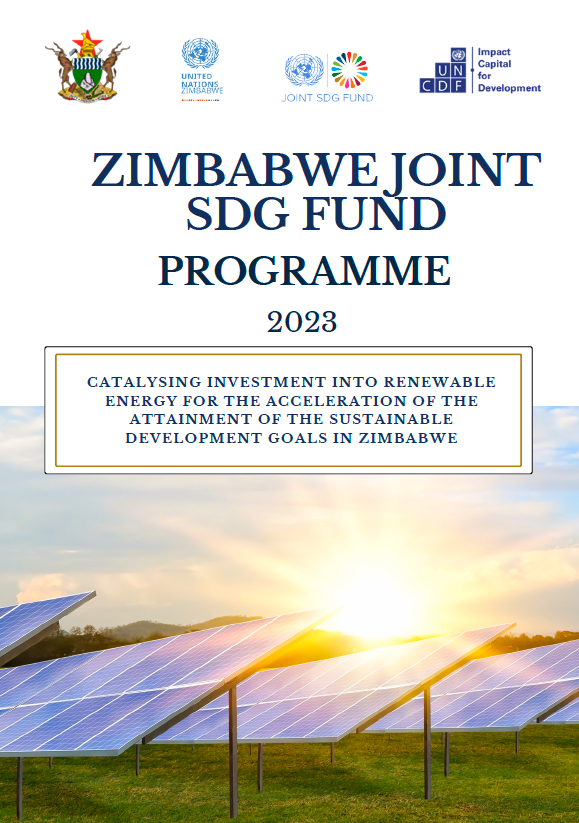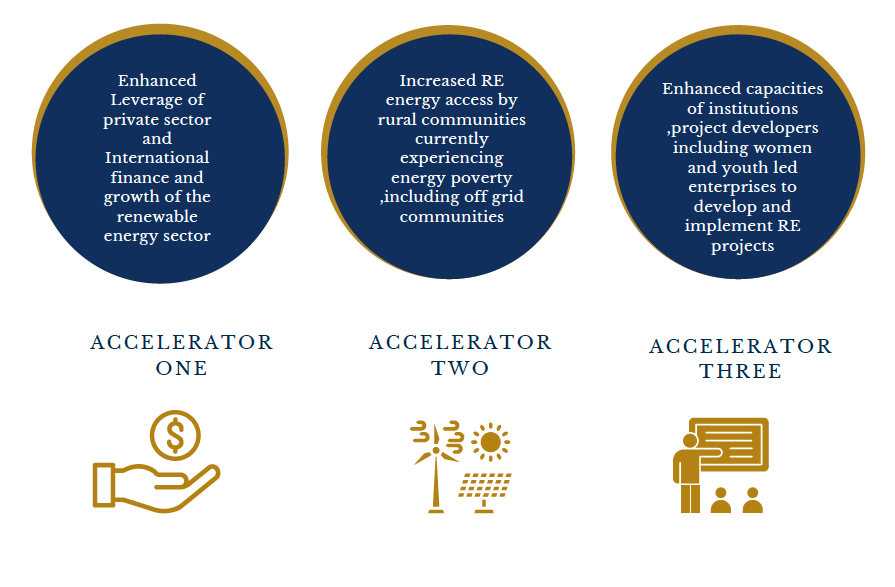Catalysing Investment into Renewable Energy in Zimbabwe

Zimbabwe is facing an acute energy crisis, which has led to a loss of production in key economic sectors such as agriculture, mining, and tourism value chains - disproportionately affecting women and youth in rural communities. Overarching financing and conducive investment terms for renewable energy and climate change projects is a priority for the country.
The UN Joint SDG Fund’s programme addresses barriers to financing by catalysing local investments in renewable energy space. This is being achieved by the establishment of an Sustainable Development Goals Renewable Energy Fund (SDG REF) which leverages local financial markets to finance renewable energy projects that have a return on investment while achieving social impact for the acceleration of SDG achievement.
The programme emphasises gender responsive and inclusive renewable energy investments with a focus on productive uses. To address capacity gaps in pre-investment, investment and post-investment stages, the UN Organizations leverage partnerships with international renewable energy organisations and local money markets to increase access to funding by small medium enterprises. The programme is carrying out transformational impact of introducing renewable energy technology with new entrepreneurship opportunities and job creation.
The UN Joint SDG Fund’s programme is of paramount importance in unlocking domestic and international capital for investments into high impact small medium enterprises and business ventures, and kick-start the required initiatives to achieve a renewable energy pathways. The financial sector ordinarily associates investments in community-based and rural projects with low returns.
The UN Organisations debunk and blend existing developmental funds with private sector funds to prove the sector viability, thus accelerating the SDGs. The added value of the UN is to closely and systematically articulate investment in renewable energy infrastructure with changes towards sustainability and capacity building.
Accelerating Local SDG Achievement
The overall approach of the programme is based on the innovative model, where interventions are designed to use Renewable Energy uptake and capacity-building initiatives to create an economic spinoff which will have catalytic effects in inducing growth in other related sectors through increased energy access.

By providing technical assistance to projects without the necessary financial resources to access finances, the joint programme bridges the gap that exists in the market and promotes project implementation.
Note:
The Joint SDG Fund's joint programmes are under the prestige leadership of the Resident Coordinator Office and implementing United Nations Agencies. With sincere appreciation for the contributions from the European Union and Governments of Denmark, Germany, Ireland, Italy, Luxembourg, Monaco, The Netherlands, Norway, Portugal, Republic of Korea, Saudi Arabia, Spain, Sweden, Switzerland and our private sector funding partners, for a transformative movement towards achieving the SDGs by 2030.



















